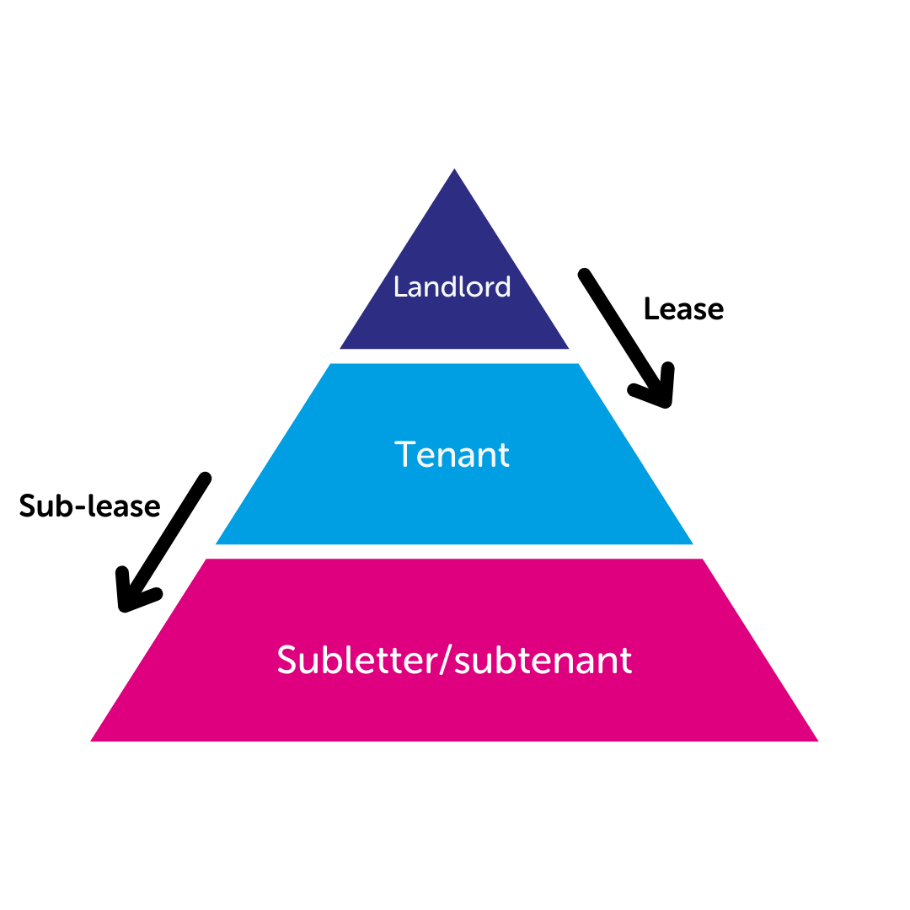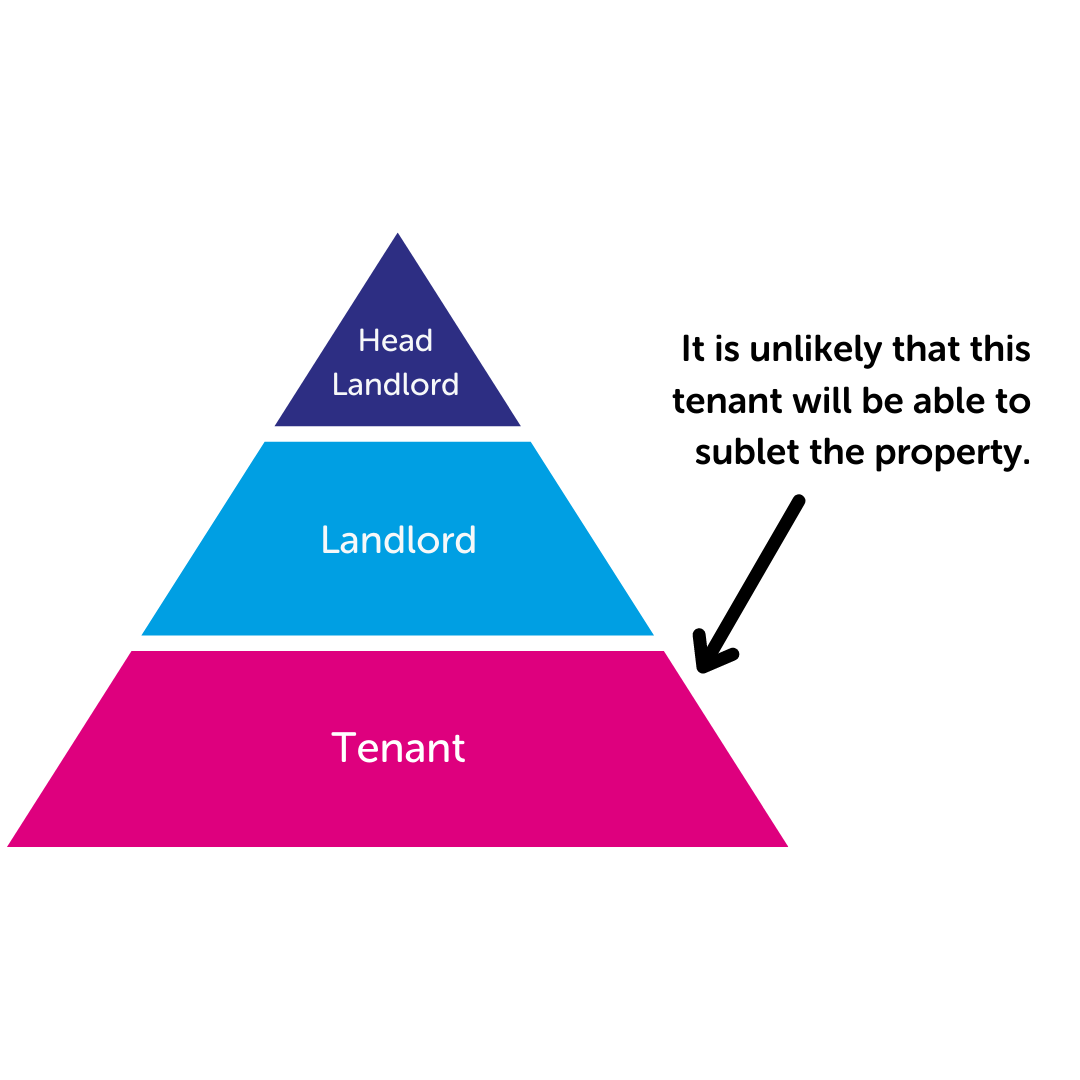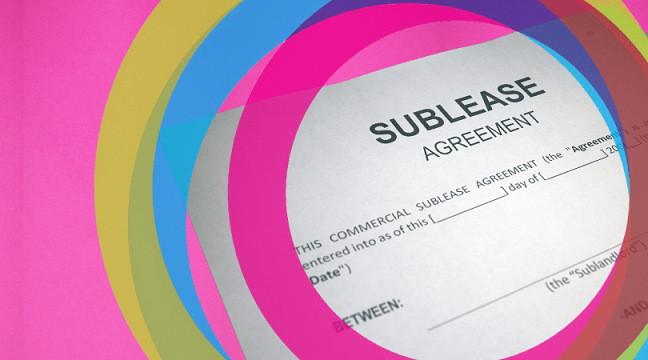In this article, Commercial Property Solicitor Richard Ramshaw looks at subletting. He outlines what it is, how it works and whether you can sublet your property.
He goes on to discuss the benefits and risks of subletting and provides some expert advice from both a tenant and subtenant perspective.
What is subletting?
When a tenant takes the lease of commercial property, they may have a right to create another lease below theirs. This is known as subletting or underletting.
Take a look at our diagram below, which demonstrates how subletting works...

Essentially, the landlord lets to the tenant, who sublets to the subtenant.
Is subletting the same as subleasing?
Yes.
Can you sublet on a commercial lease?
It depends on how the lease is drafted, but generally the tenant can sublet the whole property if they obtain landlord consent first.
Subletting of part may be permitted where there are separate spaces within the property. For example, a tenant of 10 self-contained office spaces may be allowed to sublet one of those spaces.
What are the benefits of commercial subletting?
Below we’ve detailed some of the benefits of subletting, from both a tenant and subtenant perspective…
What are the benefits of commercial subletting for tenants?
It gives a tenant the flexibility to rent out the property.
This situation could arise if the tenant’s business is not doing well and they cannot afford to pay the rent or the opposite of this if the tenant’s business is booming, they may need to move to bigger premises.
What are the benefits of commercial subletting for the subtenant?
For the subtenant – the benefit is that subleases are generally for shorter terms than if they were taking a new commercial lease directly from the landlord.
Therefore, sublets can be very advantageous to start-up businesses that may want a shorter term with less risk to make sure their business will succeed.
What are the risks of commercial subletting?
Below we’ve outlined some of the risks of subletting…
What are the risks of commercial subletting for the tenant?
The tenant must first obtain consent from the landlord, otherwise they will be in breach of their lease.
For tenants, the biggest risk is if the subtenant cannot pay the rent as that is what the tenant will be relying on to pay the landlord.
What potential issues can subletting cause for the tenant?
If the subtenant breaches any terms in the lease or damages the property, it will be the tenant who is ultimately responsible.
Issues also arise if the sublease has not been validly ‘contracted out’.
If the tenant doesn’t have the right to renew their lease at the end of the term, but they grant such a right to the subtenant, this will cause a problem for the landlord when the lease should come to an end.
Related Article: Read about a tenants' repair and maintenance responsibilities here.
What are the risks of commercial subletting for the subtenant?
For the subtenant, if the tenant doesn’t comply with their own obligations to the landlord, then they could be forced out of the property.
How to sublet a commercial space
The tenant will need to check the terms in their lease to see if subletting is permitted and what (if any) conditions need to be met before consent is provided.
In circumstances where there are a few parties involved, such as a head landlord in addition to the landlord, subletting may be prohibited completely. For example:

What are the alternatives to subletting?
The tenant can assign the whole of the lease to another tenant instead, with the landlord’s consent. Generally, assignments of part of the property will not be allowed.
For more information on assignments, please read this article.
Do I need a solicitor to sublet?
Richard Ramshaw, Commercial Property Solicitor, says: “I would always recommend instructing a solicitor to review the lease for you. All leases are bespoke to each property - not all leases are the same.
The question over whether you can or cannot sublet is not a simple yes or no and with a little steer in the right direction, you could actually save yourself a lot of time and money by getting the correct advice right from the start.”
Bright Commercial Property Solicitors
If you have any questions following this article, please feel free to get in touch with one of our bright experts.
We offer a free initial appointment for all new clients.
You can call 01202 499255, or fill out this form to get in touch.





Comments